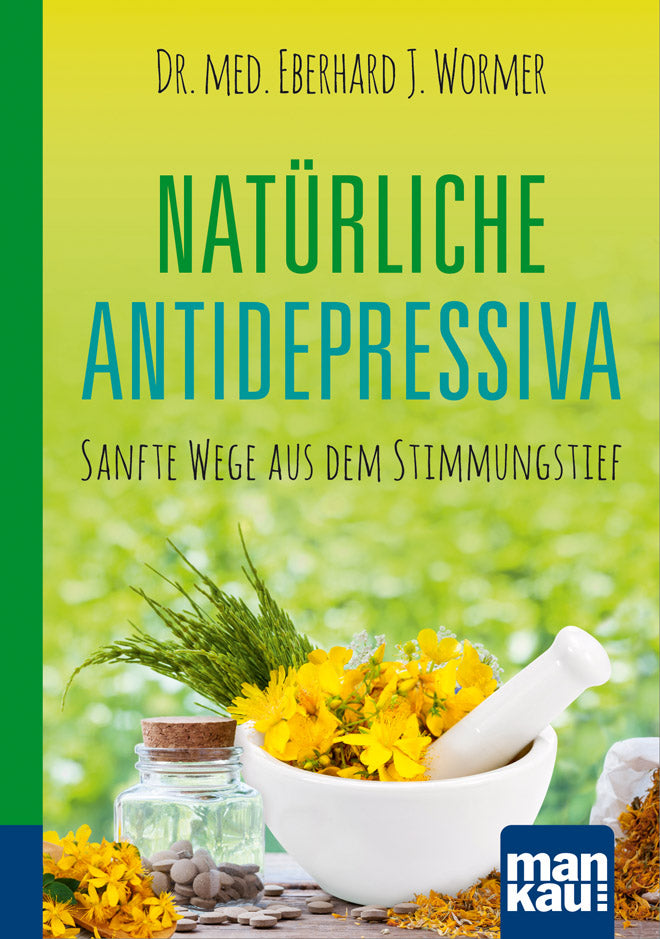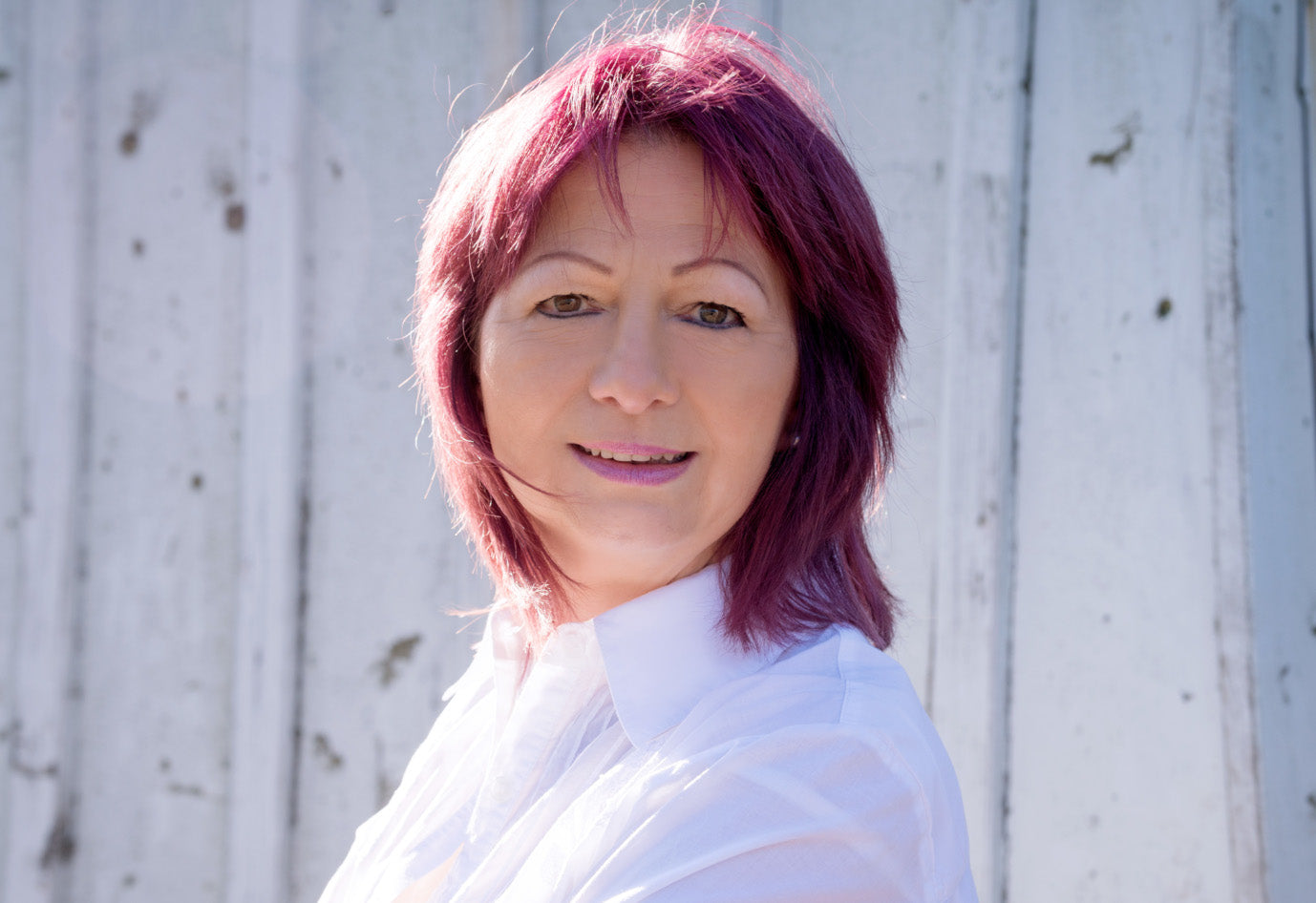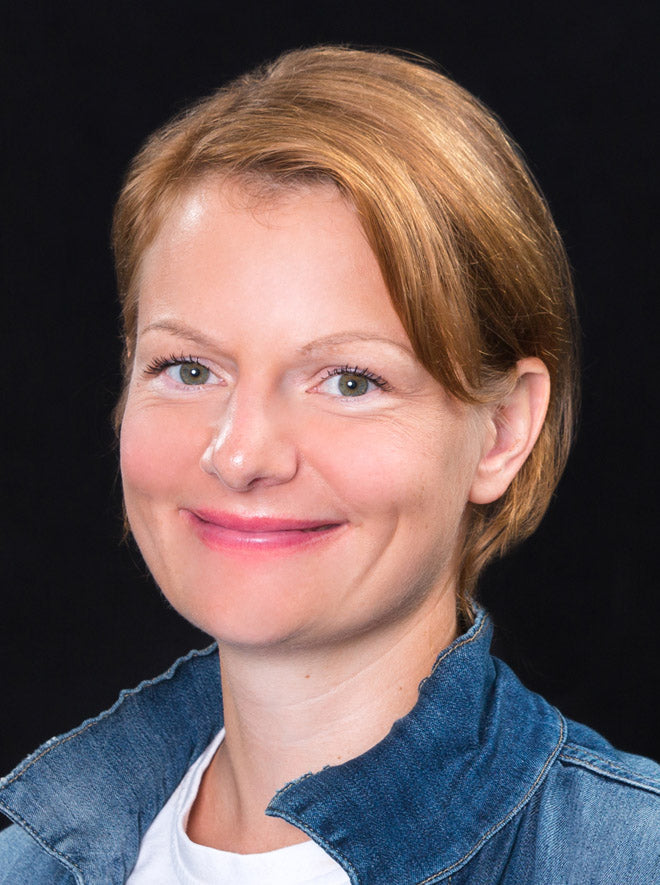
“Don’t resort to chemical weapons too quickly – nature can often help much better!”
“Don’t resort to chemical weapons too quickly – nature can often help much better!”
Interview with general practitioner and guidebook author Dr. Eberhard J. Wormer
"The rapid increase in mental illnesses is widely discussed. However, it is rarely discussed that depression often has physical causes; the most common are vitamin, mineral or hormone deficiencies. If the deficiency is correctly identified, it can be treated easily and successfully. Unfortunately, however, doctors usually know little or nothing about it and prescribe chemical antidepressants too quickly and too often - which can become a real trap in the long run."
The general practitioner Dr. Eberhard J. Wormer, author of the compact guide “Natural Antidepressants”, explains the possible causes of depressive states, explains the risks of drug treatment and presents gentle ways out of the low mood.
Depression is considered one of the most common mental illnesses. What does it actually mean and what are the differences between its various forms?
Dr. med. Wormer: Basically, a distinction must be made between depressive moods - usually temporary, depending on the cause - and real depression, which can persist. Real depression is classified as a mental illness. Depressive moods are initially a symptom that can have very different causes. If these causes are identified and the disorders eliminated, the depression disappears in many cases. If all measures are ineffective and the depressive state worsens, it is assumed that the person is suffering from real depression. Almost everyone has experienced depressive moods. In contrast, relatively few people are affected by real depression. The main difference between the two mental disorders relates to the overall emotional experience: with depressive moods, feelings such as tearful sadness or guilt are still possible - real depression, on the other hand, is the absence of any emotional sensation, which those affected experience as an unbearable hell.
You see depression as a natural reaction to any kind of stress and trauma, which in many cases is triggered by physical causes. What is behind it?
Dr. Wormer: Any type of above-average stress shifts the emotional state towards depression. Sometimes we notice it, sometimes we don't. Physical and psychological injuries - trauma - can heal, but leave permanent marks or scars that the affected person lives with. Depending on the severity of the trauma, the depression can also vary. If you feel exhausted, tired and depressed after a cold, for example, you should remember that this is a natural reaction of the body that will disappear as you recover. If you have suffered a heart attack, you must expect a severe depressive state - nowadays, more and more attempts are being made to take the risk of depression into account when treating heart attacks. One reason for depression after trauma could be the close connection between the immune system and the nervous system - the body has given priority to physical recovery, which leads to a reduction in the happiness hormones. This is natural.
The mood opposite of depression is what is known as mania. How do those affected notice that “normal” mood swings are developing into an illness?
Dr. Wormer: Those affected feel great! Possibly too great. In severe mania, the need for sleep decreases, appetite dwindles, and an enormous urge to act becomes noticeable. Manics have world-shattering ideas (which have no basis whatsoever) that they present to those around them with great conviction. They have a charming, sometimes irresistible charisma and simply feel great. In a manic state, accounts are opened at five banks, three cars are bought, huge debts are incurred, and multiple marriage vows are made in a very short space of time. Mania is the "speed mode" of life, restlessly driven by grandiose ideas, sleepless and hyperactive, and 1000 percent motivated. When the mania subsides, those affected are left with nothing. In principle, the manic has no choice; he inevitably plunges into a frenzy. It is more likely that those around them should notice such behavioral abnormalities and recognize them as a partial symptom of a mental illness. If the manic state is mild, it is called hypomania. This condition is much more common. Those affected are usually considered "normal", or at most "hyperactive", "annoying" or "doers". Nevertheless, dealing with these permanently overly good-tempered characters can be exhausting and stressful.
In the age of modern medicine and psychology, mental health problems are treated either with chemical antidepressants and/or psychotherapy. How do you assess these options, and what alternative or complementary treatment options are there?
Dr. Wormer: Every treatment option has its indication and justification, and if the diagnosis is correct, a probability of success. Antidepressants, alternative medicines and psychotherapy can, individually or in combination, help to eliminate a stressful or life-threatening depression. First, it must be clarified whether a depressive mood or a real depression is present. Then it must be ensured that there is no deficiency of any kind. If this has been clarified and (increasingly severe) depression is still noticeable, antidepressants are a helpful option - to stabilize the mood and prevent suicide. Antidepressants should, if possible, only be used for a limited time. Psychotherapy can be effective and recommended for any mood disorder. It is also a needs-based and temporary measure, especially in crisis situations - in studies with depressives, psychotherapy has sometimes proven to be just as effective as antidepressants! Alternative remedies are the “first-line therapy” for depressive conditions and mood disorders: elimination of deficiencies, treatment of gland disorders, promotion of recovery, strengthening of the immune system, exercise training or artistic activity.
Vitamin and mineral deficiencies are often the first cause of mood disorders. Which of these are associated with depression and how can they be remedied?
Dr. Wormer: The most common deficiencies that cause depression are vitamin D deficiency, iron deficiency, vitamin B12 deficiency and thyroid hormone deficiency. All of these conditions can be easily identified and successfully treated - if you think about them and do not dismiss the possibility as trivial or unimportant. Doctors usually know little or nothing about them and "reflexively" prescribe antidepressants to their patients at the slightest hint of depression - in any case far too often. Anyone who allows this to happen may unknowingly fall into the "antidepressant trap" where they can remain for years. Since doctors only feel responsible for "sick" people, you have to take action yourself: have your values checked, identify deficiencies and eliminate them with nutritional supplements. It is actually very simple and very inexpensive - and in very many cases very successful.
What are the advantages of “natural antidepressants” and what risks should be considered?
Dr. med. Wormer: Since natural antidepressants are mostly substances produced by the body itself or similar to it, there is hardly any real risk of side effects. Some drugs have specific dosage and application guidelines that should be followed. The rare exception is the elemental substance lithium, which is only used under medical supervision - lithium is a mood stabilizer for treating bipolar disorder. A healthy diet, physical exercise, psychotherapy, sleep deprivation and art therapy are very safe recommendations.
Because of their side effects and interactions, you advise against the careless use of psychotropic drugs. When is the use of the "chemical weapon" nevertheless essential?
Dr. med. Wormer: Yes, I strongly advise against the careless use of antidepressants and detest the irresponsible prescription of psychotropic drugs! Antidepressants and psychotropic drugs are absolutely justified in cases of genuine depression or psychosis. They can help to overcome serious psychological crises and prevent suicide. Antidepressants can be used in acute cases and in recurring depressive phases. They can also save lives. But they are not a sustainable solution for a mental disorder or a cure for a mental illness.
Just as depression and melancholy have always inspired great works of art, creative activities offer therapeutic options. Which options do you consider to be promising and effective?
Dr. med. Wormer: That is easy to answer: Any kind of artistic or cultural activity – be it music, painting, writing, pottery or whatever – can stabilize the psyche and successfully contribute to overcoming mood disorders.
Book tip:
Dr. med. Eberhard J. Wormer: Natural antidepressants. Compact guide. Gentle ways out of a low mood. Mankau Verlag, 1st edition September 2017. Paperback 11.5 x 16.5 cm, color, 126 pages. ISBN 978-3-86374-423-6, 8.99 euros (D) / 9.20 euros (A).
Link recommendations:
More information about the guide "Natural Antidepressants"
To the reading sample in PDF format
More about Dr. Eberhard J. Wormer
To the Internet forum with Dr. med. Eberhard J. Wormer











